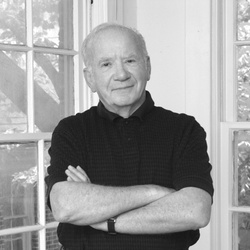Rafalowka
Pronounced “Rah-fah-WOOV-kah” (Yiddish: רפלובקה / Rafalivka, Hebrew: רפליבקה, Ukrainian: Рафалівка / Rafalivka, Russian: Рафаловка / Rafalovka)
The first known Jewish community of Rafałówka lived in the village in the 1600s. Once part of Poland, the region was annexed to the Russian Empire in 1793 and would remain under Russian control for the next 125 years.
By 1897 Jews made up approximately one half of the total village population of about 2,000. Many lived near the recently built railroad station.
After World War I (1914-1918) Rafałówka was incorporated into the newly independent country of Poland. Survivor Michael Breston remembered growing up without electricity or running water. The unpaved streets meant “quite a lot of mud everywhere you went.”
Tensions flared between ethnic groups as the majority Ukrainian population was subject to Polish administration. Breston described how Yiddish-speaking Jews faced constant antisemitism from both Ukrainians and Poles. He recalled that Jews lived in fear of “triggering repercussions if we did something which the non-Jewish population felt was not to their liking.” In one instance Breston’s cousin was beaten with a horse whip because the attacker “decided that he didn’t like to see a kid taking a ride on his sled.”
Amidst these hostilities the Zionist movement attracted many followers who sought a Jewish homeland in the Middle East. A Zionist Hebrew school counted roughly 200 students.
The situation only grew worse after World War II began in September 1939. While Nazi Germany invaded western Poland the Soviet Union invaded from the east. Rafałówka came under Soviet administration and many Jewish refugees from western Poland fled to the village. Breston recalled that “when we had an influx of professional people running away from Hitler’s occupation.”
Roughly two years later the village changed hands again with the Nazi invasion of eastern Europe in the summer of 1941. A Jewish ghetto in Rafałówka was established on May 1, 1942. Only a few months later the ghetto was liquidated. Breston hid in an attic while his mother and brother were forced to a work detail digging holes outside the village. The next day Breston heard shots being fired. His mother and brother were murdered into the same pits they had dug the day before, along with some 2,250 other Jewish men, women and children.
Breston and his father survived the rest of the war in partisan groups that lived in the woods and waged guerrilla warfare against the Nazis. Today no Jews live in the village.
Rafalowka: Photographs & Artifacts
Destroyed Communities Memorial Slope
Rafalowka: Survivors

When they told us to dig our graves, I saw people try to do something with their gold that they were still hiding. I was walking on gold coins and I didn’t pick them up. What’s the use? And I knew how hard the people who had the gold had to work, what they denied themselves. I cannot help to think every time I see people accumulating worldly possessions, including myself, what for, why not live a full life, enjoy life, and be grateful for every day that comes along?